When Do Puppies Stop Biting? Expert Tips for Puppy Parents
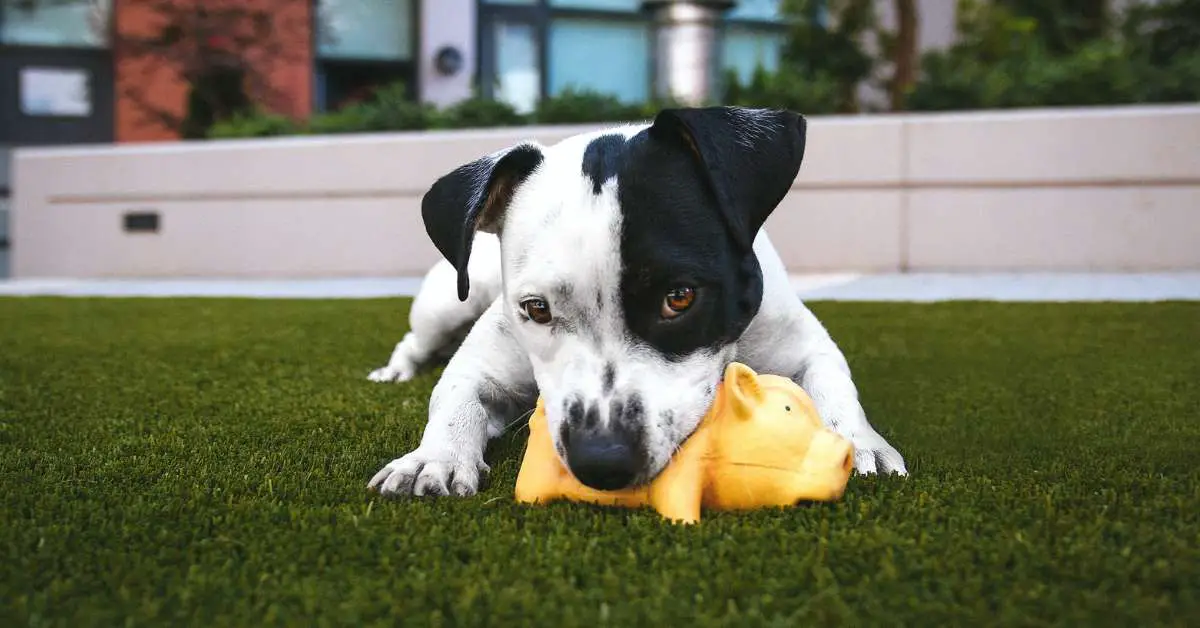
Welcoming a new puppy into your home is a joyful occasion, filled with boundless energy, adorable antics, and a significant amount of love.
However, along with the cuddles and playtime, you’re likely to encounter a common puppy behavior – biting.
Those sharp little teeth might seem cute at first, but as they grow, so does the potential for discomfort.
Understanding when and why puppies bite is essential for both their development and your sanity.
In this comprehensive guide, we’ll delve into the intricacies of this phase, offering valuable insights into how to navigate the teething process.
From the science behind puppy biting to practical tips for managing it, we’ve got you covered.
Let’s embark on this journey together, ensuring a harmonious and fulfilling relationship with your furry companion.
Key Takeaway:
- Teething is a natural phase in a puppy’s development, marked by discomfort and a strong urge to chew. By understanding this process and employing consistent training techniques, you can guide your puppy towards healthy, appropriate chewing habits.
- Remember, patience and positive reinforcement are your best tools.
- With time and effort, you’ll not only help your pup through this stage but also build a strong foundation for a well-mannered, happy canine companion.
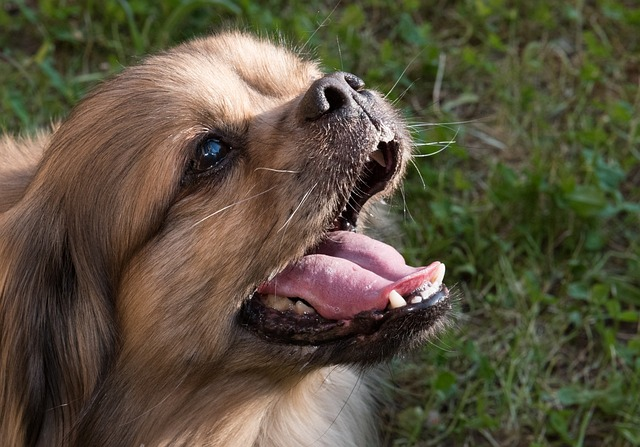
When Do Puppies Stop Biting And How To Cope With A Teething Lab Puppy
Bringing a puppy into your life is an exciting adventure. Their boundless energy and playful spirit make them wonderful companions.
However, along with all the joy, you might find yourself dealing with a common challenge: puppy biting.
Those tiny, needle-sharp teeth can be quite a surprise for new puppy parents.
Explore when puppies typically grow out of this phase and provide you with effective strategies to cope with a teething puppy.
Understanding the Teething Phase
Teething is a natural process that all puppies go through.
Similar to human infants, puppies go through a phase where they may experience discomfort and itchiness in their gums as their adult teeth begin to emerge.
This usually begins around three to four months of age and can last until they’re about six months old.
During this period, your Lab may be more inclined to bite and chew as a way to alleviate the discomfort.
The Science Behind Puppy Biting
To effectively cope with a teething puppy, it’s crucial to understand the science behind their behavior.
Puppies explore the world through their mouths, much like human infants do with their hands. Biting is a normal part of their development, and it helps them learn about their environment.
Additionally, chewing provides relief for sore gums.
6 Tips for Coping with a Teething Lab Puppy
1. Provide Appropriate Chew Toys: Offering a variety of chew toys specifically designed for teething puppies can be a game-changer. Look for toys made of durable materials that can soothe their gums and keep them engaged.
2. Use Puppy-Approved Teething Aids: Consider using teething gels or frozen teething toys, which can provide additional relief. Always ensure that these aids are safe and recommended by your veterinarian.
3. Teach Bite Inhibition: When your Lab bites too hard during play, gently yelp to mimic a puppy’s response. This helps them understand that their bite was too rough. Consistent reinforcement of this technique can teach them to be gentler.
4. Avoid Punishment: It’s important not to punish your puppy for biting. This can lead to fear and anxiety, which can hinder their overall development.
5. Socialization and Training: Engage your Lab in regular socialization with other dogs and expose them to various environments and situations. Professional training classes can also help them learn appropriate behavior.
6. Redirect Their Attention: If your puppy begins to bite, guide their focus towards a suitable toy or engaging activity. This helps them understand what’s acceptable to chew on.
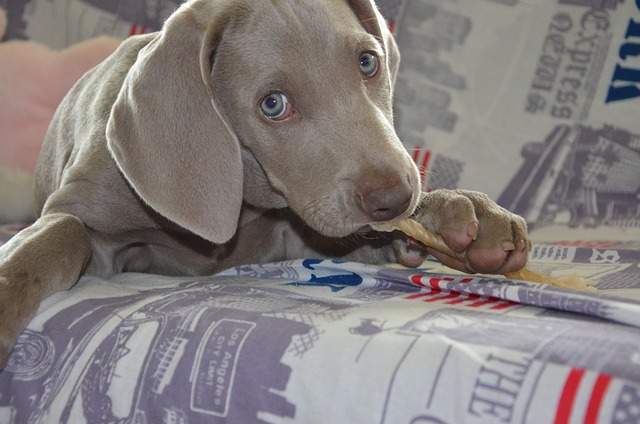
When should you be concerned about biting in puppies?
While puppy biting is a normal part of their development, there are situations where it’s important to be concerned and take action.
Here are some instances where you should be concerned about biting in puppies:
1) Aggressive Behavior: If the puppy’s biting is accompanied by aggressive body language, such as growling, snarling, or stiffening, this can be a cause for concern. Aggression in puppies should be addressed promptly.
2) Biting That Breaks Skin: If the puppy’s bites are consistently hard enough to break the skin, this is a serious issue and should be addressed immediately. It indicates a lack of bite inhibition and can potentially lead to more serious problems in the future.
3) Puppy Doesn’t Respond to Correction: According to akc.org, “Watch Me” method can work well. However, if your attempts to correct the biting behavior through gentle methods like redirecting attention or using a yelping sound don’t show any improvement over time, it’s a cause for concern.
4) Fear or Anxiety-Induced Biting: If the puppy bites out of fear or anxiety, especially in situations that don’t seem to warrant such a response, it’s a sign that there may be underlying behavioral issues that need professional attention.
5) Resource Guarding: If the puppy exhibits aggressive behavior when trying to take away a toy, food, or any possession, it’s a sign of resource guarding. This behavior should be addressed promptly to prevent future issues.
6) Consistent Aggressive Play: While play-fighting is normal among puppies if one puppy consistently displays overly aggressive play behavior, it may be a sign of underlying behavioral issues.
7) Biting Directed at Humans or Other Animals: If the puppy shows a strong preference for biting humans over other forms of play or engagement, or if they exhibit aggression towards other animals, it’s a cause for concern.
8) Regression or Escalation in Behavior: If the biting behavior seems to be getting worse rather than improving with age or training, it’s important to seek professional help.
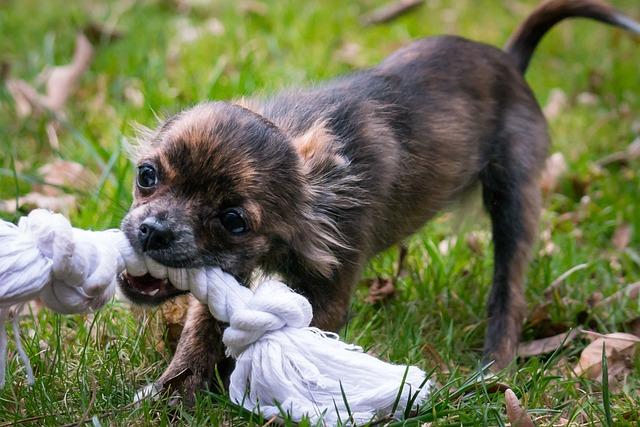
If you observe any of these signs, it’s crucial to consult a professional dog trainer or behaviorist. They can provide expert advice and guidance tailored to your specific situation.
Additionally, a veterinarian should be consulted to rule out any potential health issues that may be contributing to the behavior.
Remember, early intervention is key in addressing and correcting biting behavior in puppies.
How to Stop a Puppy From Biting: 6 Helpful Puppy Training Tips
Puppy biting is a natural behavior, but it’s essential to teach them appropriate bite inhibition to ensure a harmonious relationship with your furry companion.
This guide provides practical training tips to help curb biting behavior and foster a well-mannered, happy pup.
1). Teach Bite Inhibition
Explanation: Bite inhibition is the ability of a puppy to control the force of its bite. This skill is crucial in preventing accidents or injuries during play.
Training Technique:
When your puppy bites too hard, emit a high-pitched yelp to replicate the sound of a distressed puppy.
Immediately stop playing and withdraw attention. This teaches the puppy that rough play leads to the end of fun.
2). Provide Appropriate Chew Toys
Explanation: Giving your puppy a variety of suitable chew toys helps alleviate teething discomfort and redirects their biting behavior to appropriate items.
Training Technique: Offer a selection of chew toys made from safe, durable materials. Rotate them to keep your puppy engaged.
Praise and reward when your puppy chews on the toy instead of your hands or clothing.
3). Use Positive Reinforcement
Explanation: Positive reinforcement helps your puppy associate good behavior with positive outcomes, reinforcing desired actions.
Training Technique: Whenever your puppy exhibits gentle or non-biting behavior, offer praise, treats, or affection to reinforce the positive action.
Be consistent with rewards to reinforce the message.
4). Avoid Harsh Punishments
Explanation: Harsh punishments can cause fear and anxiety in puppies, potentially exacerbating behavioral issues.
Training Technique: Instead of punishment, focus on redirecting and positively reinforcing good behavior.
Use calm, assertive energy to guide your puppy toward appropriate play.
5). Socialize Your Puppy
Explanation: Proper socialization with other dogs and people helps puppies learn appropriate play behavior.
Training Technique: Arrange controlled playdates with well-mannered, vaccinated dogs.
Expose your puppy to various environments and experiences to build their confidence and reduce anxiety-related biting.
6). Enroll in Puppy Training Classes
Explanation: Professional training classes offer structured learning environments and expert guidance for both you and your puppy.
Training Technique: Seek out reputable puppy training classes in your area. Look for positive reinforcement-based methods.
Consistent training with a professional can greatly improve your puppy’s behavior.
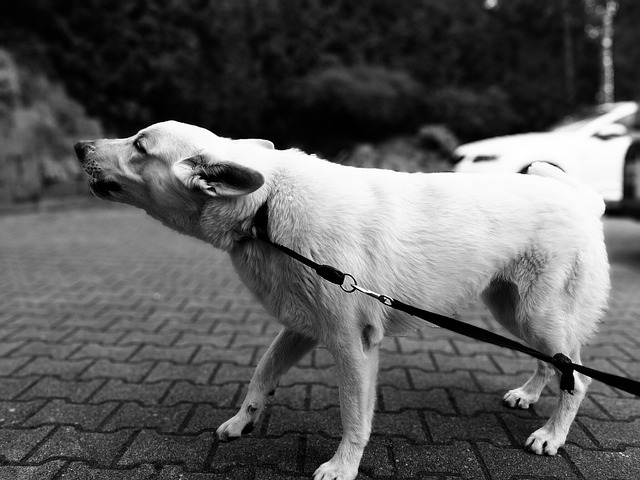
Why Do Puppies Bite Children?
Puppies may bite children for several reasons, and it’s important to understand that this behavior is typically not driven by aggression, but rather a combination of natural instincts and learning experiences.
Here are some common reasons why puppies may bite children:
1. Exploration and Play:
Puppies, much like human babies, explore the world through their mouths. They use their mouths to learn about their environment, which includes interacting with people, objects, and other animals.
When children engage with puppies, their natural curiosity may lead them to use their mouths.
2. Teething:
According to AKC.org, from week 2 and up to 6 months of life, puppies go through a teething phase, where their baby teeth are replaced by adult teeth.
This process can be uncomfortable and even painful, motivating them to chew on various objects, including hands and fingers. Children’s hands might be especially appealing due to their small size.
3. Excitement and Overstimulation:
Puppies, especially high-energy breeds, can become overexcited during play. When they’re in a playful state, they might nip or bite as part of the interaction.
This can be especially true when playing with children who might be moving quickly or making loud noises.
4. Lack of Bite Inhibition:
Young puppies haven’t yet learned to control the force of their bites, a skill known as “bite inhibition.”
If a puppy hasn’t had opportunities to interact with other dogs or puppies and learn this skill, they may not realize that their bites are too hard.
5. Socialization Deficits:
If a puppy hasn’t been adequately socialized with children during their critical developmental period, they may not know how to appropriately interact with them. This can lead to rough play or biting.
6. Mixed Signals:
Sometimes, well-intentioned attempts at play by children can inadvertently encourage biting behavior.
For example, rough play or teasing might be interpreted by the puppy as an invitation to engage in a more intense manner.
7. Fear or Anxiety:
If a puppy feels scared or threatened, they may resort to biting as a way of protecting themselves. This can happen if a child approaches too quickly or in a way that the puppy finds intimidating.
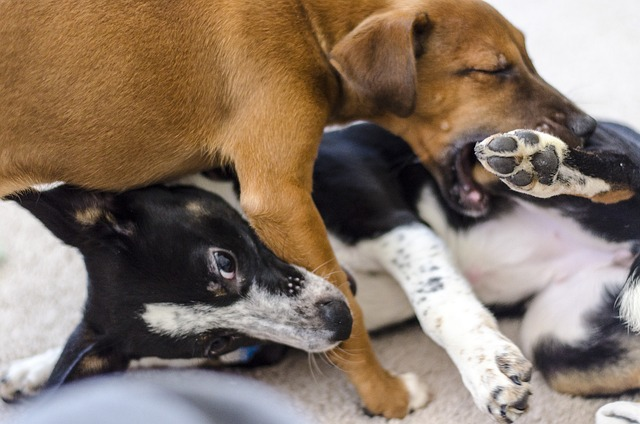
When do puppies stop biting? That might be up to their owner
The timeline for when puppies stop biting can vary depending on factors like breed, individual temperament, and the consistency of training provided by the owner.
On average, most puppies start to show a significant reduction in biting behavior by the time they reach six to eight months of age.
By this age, they should have developed better bite inhibition and learned appropriate ways to interact with humans.
However, it’s important to note that the process may be faster or slower for different puppies.
Some puppies may naturally have a softer bite and learn bite inhibition earlier, while others may take longer to grasp the concept.
The owner’s role in training and socializing the puppy is crucial.
Consistent training, positive reinforcement, and providing appropriate outlets for chewing and play can significantly influence how quickly a puppy learns to control their biting.
Additionally, the owner’s ability to read and respond to the puppy’s body language, as well as their consistency in enforcing rules, plays a vital role in the training process.
Ultimately, while the timeline for when puppies stop biting may vary, with patience and consistent training, most puppies can learn appropriate behavior and bite inhibition by the time they reach adulthood.
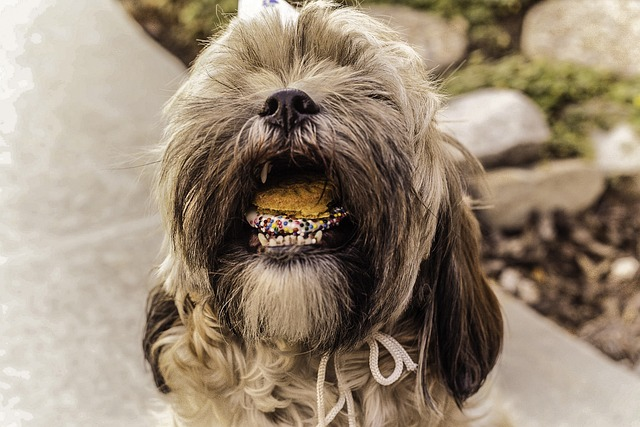
10 How To Stop Your Puppy Biting Hands
Stopping your puppy from biting hands is an important aspect of their training. Here are effective steps to help curb this behavior:
1) Use Bite Inhibition Training:
Yelp or Say “Ouch”: When your puppy bites, let out a high-pitched yelp or say “ouch” in a sharp tone. This mimics the sound of a distressed littermate and signals that the bite was too hard.
Withdraw Attention: Immediately stop any interaction, turn away, and avoid eye contact. This teaches your puppy that biting leads to the end of play or attention.
2) Provide Appropriate Chew Toys:
Offer a variety of chew toys made from safe, durable materials. Rotate them regularly to keep your puppy engaged.
Encourage them to chew on the toys by showing interest and offering praise when they engage with them.
3) Use Positive Reinforcement:
Praise and reward your puppy when they play gently or chew on their toys instead of your hands. Use treats or verbal praise to reinforce this behavior.
Be consistent with your rewards to reinforce the message.
4) Avoid Rough Play:
Refrain from engaging in rough play that might encourage biting. Instead, opt for activities that promote calm interaction.
5) Be Consistent:
Consistency is key in puppy training. Everyone in the household should use the same methods and signals to communicate that biting is not acceptable.
6) Provide Mental and Physical Stimulation:
Make sure your puppy receives ample exercise and mental stimulation through playtime, walks, and interactive toys. A tired puppy is less likely to engage in excessive biting.
7) Teach “Leave It” and “Drop It” Commands:
These commands are valuable for redirecting your puppy’s attention away from your hands and toward appropriate toys or objects.
8) Use Taste Deterrents (Optional):
Some taste deterrent sprays are available that can be applied to your hands. These products have a bitter taste that discourages puppies from mouthing.
9) Avoid Punishment:
Punishing a puppy for biting can create fear and anxiety, which may exacerbate behavioral issues. According to AKC.org, focus on positive reinforcement and redirection instead.
10) Seek Professional Guidance if Needed:
If your puppy’s biting behavior persists or worsens despite your efforts, consider consulting a professional dog trainer or behaviorist.
They can provide tailored advice and techniques for your specific situation.
Remember, patience and consistency are crucial when training a puppy.
With time and positive reinforcement, your puppy will learn appropriate bite inhibition and grow into a well-behaved and gentle adult dog.
10 Preventive Measures for Managing Puppy Biting:
1) Provide Appropriate Chew Toys: Offer a variety of safe, durable chew toys to satisfy your puppy’s teething needs and redirect their biting behavior.
2) Supervise Playtime: Always monitor interactions between your puppy and other dogs, children, or family members. Intervene if play becomes too rough.
3) Practice Bite Inhibition: Teach your puppy to control the force of their bite through yelping and withdrawal of attention when biting is too hard.
4) Socialize Your Puppy: Expose them to various environments, people, and other dogs to build confidence and reduce anxiety-related biting.
4) Enroll in Puppy Training Classes: Professional guidance can help you teach your puppy appropriate behavior and address any biting concerns.
6) Maintain a Consistent Routine: Establish regular feeding, play, and potty schedules to provide structure and predictability for your puppy.
7) Use Positive Reinforcement: Reward good behavior with praise, treats, or affection to reinforce appropriate play and chewing habits.
8) Avoid Harsh Punishments: Punishing your puppy can create fear and anxiety, potentially exacerbating biting behavior. Focus on positive reinforcement instead.
9) Keep Them Stimulated: Provide mental and physical exercise to prevent boredom, which can lead to excessive chewing and biting.
10) Consult a Professional: If biting behavior becomes a concern, seek advice from a veterinarian or professional dog trainer who can offer personalized solutions.
FAQs
1. Why is my puppy biting me aggressively?
Puppy aggression during play is usually a result of natural behavior.
Puppies explore the world with their mouths, and during play, they may become overexcited, leading to rougher interactions.
It’s important to distinguish between aggressive behavior and normal playfulness.
If your puppy’s biting is consistently hard, accompanied by growling or other signs of aggression, seeking professional advice from a veterinarian or dog trainer is recommended.
2. How To Train A Puppy Not To Bite?
Training a puppy not to bite involves several key steps:
- Implement bite inhibition training, teaching your puppy to control the force of their bites.
- Provide appropriate chew toys to redirect biting behavior.
- Use positive reinforcement to reward gentle play and chewing on toys.
- Avoid rough play and ensure consistent responses to biting.
- Monitor and manage your puppy’s energy levels through exercise and mental stimulation.
- Remember, patience and consistency are crucial in training a puppy not to bite.
3. What About Puppy Teething?
Puppy teething is a natural process where a puppy’s baby teeth fall out to make way for their adult teeth.
This typically starts around three to four months of age and can last until they’re about six months old.
During this phase, puppies may experience discomfort, sore gums, and a strong urge to chew. It’s important to provide appropriate chew toys to help soothe their gums and redirect their biting behavior.
Additionally, positive reinforcement training and teaching bite inhibition can help manage teething-related biting.
If you have concerns about your puppy’s teething process, consult your veterinarian for personalized advice.
4. How can I soothe my puppy’s sore gums during teething?
You can provide relief to your puppy’s sore gums by offering appropriate chew toys made of safe, durable materials.
Additionally, freezing a washcloth or a specially designed teething toy can offer comfort. Be sure to supervise them while they chew to ensure safety.
5. Are there specific chew toys recommended for teething puppies?
Yes, there are various chew toys designed to soothe teething puppies. Look for options made of soft rubber or durable materials that are safe for chewing.
Brands like Kong, Nylabone, and Zogoflex offer a range of teething toys suitable for puppies.
6. How can I prevent my puppy from biting children or other family members?
It’s important to teach your puppy bite inhibition and appropriate play behavior. Supervise interactions with children closely and educate them on gentle play.
Consistent training and positive reinforcement will help your puppy learn to interact gently with family members.
7. When should I seek professional help for my puppy’s biting behavior?
If your puppy’s biting behavior is consistently aggressive, causes injuries, or does not improve with training, it’s crucial to consult a professional dog trainer or behaviorist.
They can provide specialized advice and techniques tailored to your specific situation.
8. Is it normal for my puppy to lose teeth during the teething process?
Yes, it’s completely normal for puppies to lose their baby teeth during teething.
You may find small teeth around your home, and this is a positive sign that their adult teeth are coming in.
If you have concerns about your puppy’s dental development, consult your veterinarian for guidance.
Final Notes
Navigating the teething phase with your puppy can be both rewarding and challenging. Remember, patience and consistency are your greatest allies.
By understanding the natural process of teething and implementing effective training techniques, you’re not only helping your puppy through a crucial developmental stage but also fostering a strong bond built on trust and communication.
Always keep in mind that each puppy is unique, and what works for one may require slight adjustments for another.
Pay close attention to your puppy’s cues and adapt your approach accordingly. Seek professional advice if you encounter any persistent challenges or concerns.
As you guide your furry friend through this phase, cherish the moments of growth and discovery.
Soon, those sharp puppy teeth will give way to the strong, healthy adult teeth of a well-adjusted and happy canine companion.
Embrace the journey, and revel in the joy that comes with raising a loving and well-mannered pup. Happy training!
